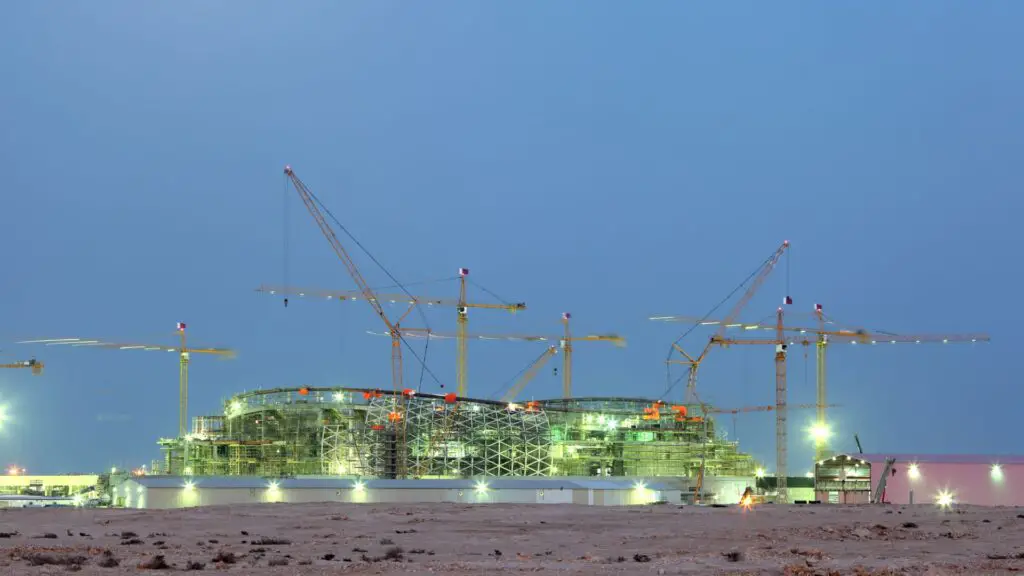Efficient construction is the ultimate goal of builders and civil engineers alike, which is why collaboration between expert builders in Cairns such as builders and civil engineers is such a crucial element to reaching this objective. By working together on strategies that optimize timelines, cost-effectiveness, quality, and timelines this article explores the significance of collaborative efforts between builders and civil engineers to reach efficient construction outcomes – through better communication, streamline processes, and increasing overall project efficiency by employing collaborative strategies between these professionals.

Understanding Roles and Responsibilities
Before exploring collaborative strategies, it is crucial to establish an in-depth knowledge of both builders and civil engineers’ roles and responsibilities. Builders oversee on-site construction activities while civil engineers ensure compliance with plans and specifications.
Civil engineers specialize in the planning, designing and technical aspects of construction projects. Their services include structural analysis and planning services as well as infrastructure planning services. Working closely with builders, they ensure their designs translate successfully to built environments while meeting all structural and technical requirements.
Also Read: 5 Job Roles that open up to you after completing your Civil Engineering
Effective Communication and Early Involvement are Key Elements of Success
Clear and open communication between builders and civil engineers is critical to effective construction projects. Involving civil engineers early in project planning ensures optimal collaboration from day one, while builders can benefit from their technical insights and expertise when making informed decisions that optimize construction efficiency.
Builders can gain advantage from engaging civil engineers early in the construction process to take advantage of their expertise in assessing site conditions, project feasibility and potential construction hurdles. Civil engineers provide builders with invaluable insight into structural and technical aspects of the project to ensure construction plans align with engineering requirements and building codes.
Design Coordination and Value Engineering Services provided.
Cooperation between builders and civil engineers during the design coordination process is essential for efficient construction. Builders work hand in hand with civil engineers to translate designs into practical plans that can be constructed. Together they collaborate on finding methods, materials and sequences which maximize efficiency while reducing waste.
Value engineering is an essential aspect of design coordination. It involves identifying opportunities to increase value and efficiency without compromising project quality, such as through using alternative materials, techniques, or design modifications that could enhance project outcomes, reduce costs, accelerate construction timelines and optimize their processes to increase productivity and reach greater efficiencies. Builders and civil engineers collaborate closely on value engineering studies together.
Also Read: Knowing How to Value Your Work: How Much Can You Charge as an Independent Contractor?
Like Us on Facebook!
Constructability Reviews and Clash Detection Systems
Collaborative strategies also involve constructability reviews and clash detection. Constructability reviews are conducted by civil engineers in conjunction with builders to assess the feasibility of construction plans, identify any potential conflicts within designs and provide solutions to optimize construction efficiency. Constructability reviews help eliminate design flaws or issues that may cause delays or rework during the building phase.
Subscribe Us on YouTube!
Clash detection is the process of recognizing and resolving conflicts among different building systems or components. Builders and civil engineers utilize Building Information Modeling (BIM) and other advanced software tools to detect clashes among architectural, structural, mechanical, and electrical elements – an early detection can mitigate potential construction delays while decreasing rework costs and increasing overall construction efficiency.
Effective Resource Management Strategies and Implementations Strategies.
collaboration between builders and civil engineers is integral for effective resource management. Builders depend on civil engineers for accurate quantity take-offs and specifications of construction materials; civil engineers collaborate closely with builders in estimating quantities needed for projects to ensure there are no shortages or unnecessary waste.
Effective resource management includes optimizing labor allocation and scheduling. Builders collaborate with civil engineers to devise construction schedules that take into account critical activities, resource availability and sequencing; in doing so, builders and civil engineers can avoid delays, maximize labor utilization rates, optimize overall construction efficiency and enhance overall project performance.
Quality Assurance and Inspection.
Collaborative efforts between builders and civil engineers are critical in maintaining quality control throughout the construction process. Builders work closely with civil engineers to ensure that construction adheres to approved plans, specifications and quality standards. Civil engineers conduct regular inspections to verify whether construction meets all structural and technical requirements.
Builders and civil engineers work in collaboration to identify any construction issues or deviations from plans, and implement corrective measures promptly, ensuring the project continues to meet high-quality standards. By taking proactive steps toward quality control, builders and civil engineers can minimize rework while increasing construction efficiency for an improved final product.
Technology Integration
Technology has an enormous effect on construction efficiency today. Builders and civil engineers alike can leverage modern construction technologies such as cloud-based collaboration platforms for real-time information sharing, document management and communication between builders and civil engineers – helping reduce miscommunication and delays to projects.
Building Information Modeling (BIM) is another technology designed to promote collaboration and increase construction efficiency. BIM allows builders and civil engineers to use virtual 3D models of projects created in BIM as a collaborative effort, integrating architectural, structural, and MEP (mechanical, electrical, plumbing) systems within its environment for easier detection of clashes, design alternatives analysis, optimized sequencing scheduling as well as improved efficiency overall resulting in enhanced coordination and coordination for improved construction outcomes.
Improvement and Lessons Learned
Collaboration between builders and civil engineers should encompass a commitment to continuous improvement, the sharing of lessons learned, and project reviews and evaluations after every construction project to determine what areas worked well and where improvements can be made.
Undergoing post-project evaluations allows builders and civil engineers to gain invaluable insights and lessons learned, which they can incorporate into future projects to increase collaboration and construction efficiency. Fostering an environment of continuous improvement helps builders and civil engineers refine their collaborative strategies over time for even greater efficiency and success in future projects.
Conclusion
Cooperation between builders and civil engineers in Cairns is of utmost importance in order to produce efficient construction results. Builders and civil engineers can maximize project timelines, cost-effectiveness, quality control, technology integration and continuous improvement through effective communication, early involvement, design coordination, clash detection, efficient resource management, quality control, technology integration and continuous improvement. By pooling their expertise and working collaboratively, these professionals can streamline construction processes, reduce rework, and deliver successful construction projects. Understanding collaborative strategies and creating strong partnerships among builders and civil engineers are crucial to efficient construction processes and ensure client satisfaction.
















